- Home
- »
- LED Display
China LED Screen Supplier for Indoor & Outdoor
LED Display
As a professional LED display manufacturer, Unify LED has consistently provided reliable products, comprehensive services, and innovative solutions.
We offer waterproof LED displays for outdoor advertising. Whether you need pole-mounted, wall-mounted, or flush-mounted displays, with front- and back-mounted maintenance options, high brightness, and energy-saving features, we have the right outdoor LED screen.
For indoor fixed installation displays, we offer professional magnetic screens. Unlike stage screens, these are lighter, thinner, and easier to install. They are widely used in churches, conference rooms, bars, and other venues.
We offer a wide range of stage rental screens, offering high-quality and cost-effective options for both indoor and outdoor stage screens.
LED poster displays: standard, double-folding, and tri-folding. They support single-screen displays and can be connected to multiple screens to create a large display. They are suitable for shopping malls, retail stores, exhibitions, and stages.
Unify LED doesn’t manufacture low-end products. All components are from well-known domestic brands. Therefore, we don’t offer cheap LED displays or those that need replacement after just one or two years.
Outdoor LED Display

LED Advertising Billboard-LA Series
LED Advertising Billboard-LA Series Module size 320*160mm, 1m*1m large size panel Optimized structure, flexible installation Common cathode energy saving High
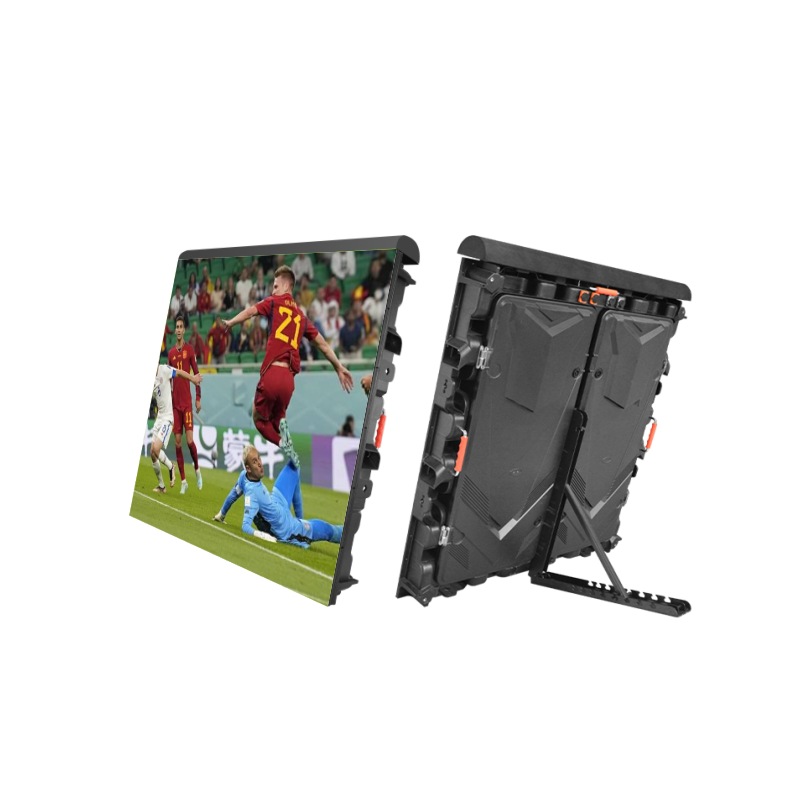
Sport LED Screen – SP Series
Stadium LED Display- SP Series Outdoor Sports Perimeter LED Display Board Pixel pitch P4/P5/P6/P8/P10 Standard Cabinet Size :1280*960mm 3840Hz high
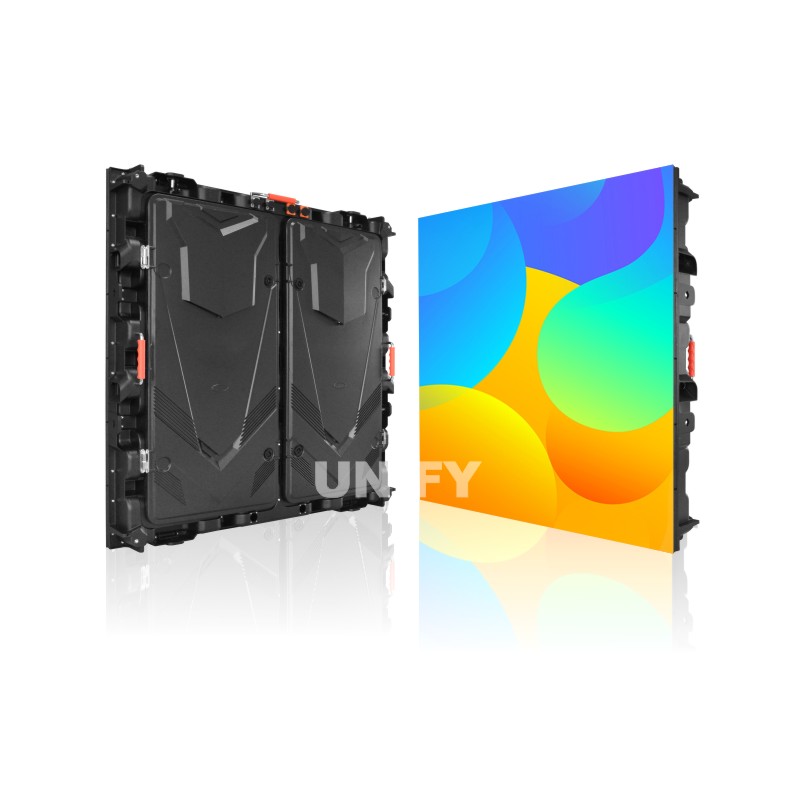
Advertising LED Screen – B Series
Advertising LED Screen – B Series Module size 320*160mm, panel size 960*960mm Pixel pitch P4/P5/P6/P8/P10 Wide viewing angle Brightness options
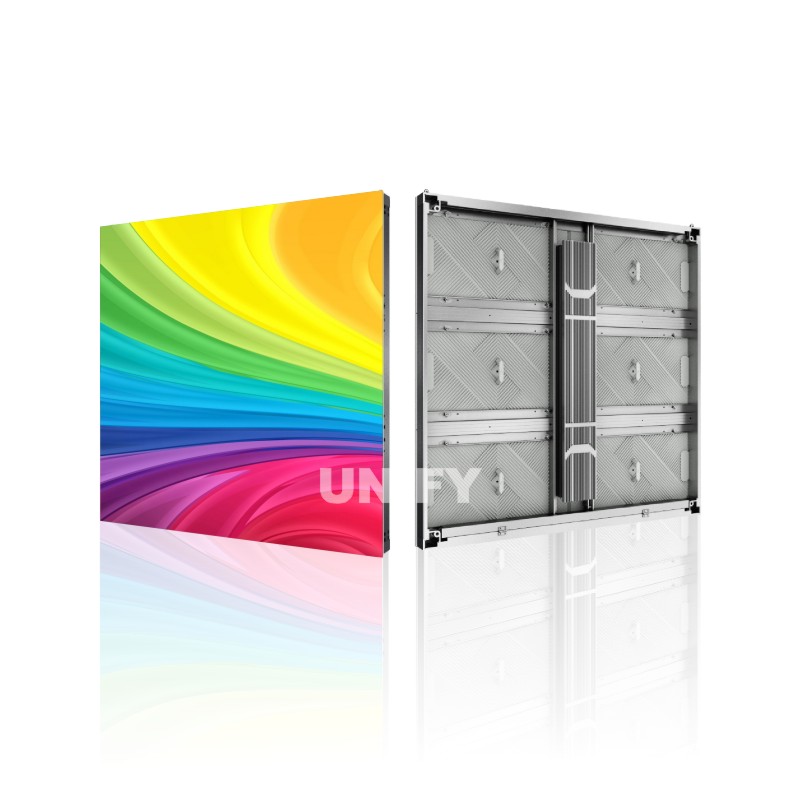
Outdoor LED Billboard-OK Series
Outdoor LED Billboard – OK Series Module size 320*160mm, panel size 960*960mm Pixel pitch P5/P6/P8/P10 to meet various needs Save
Indoor LED Display
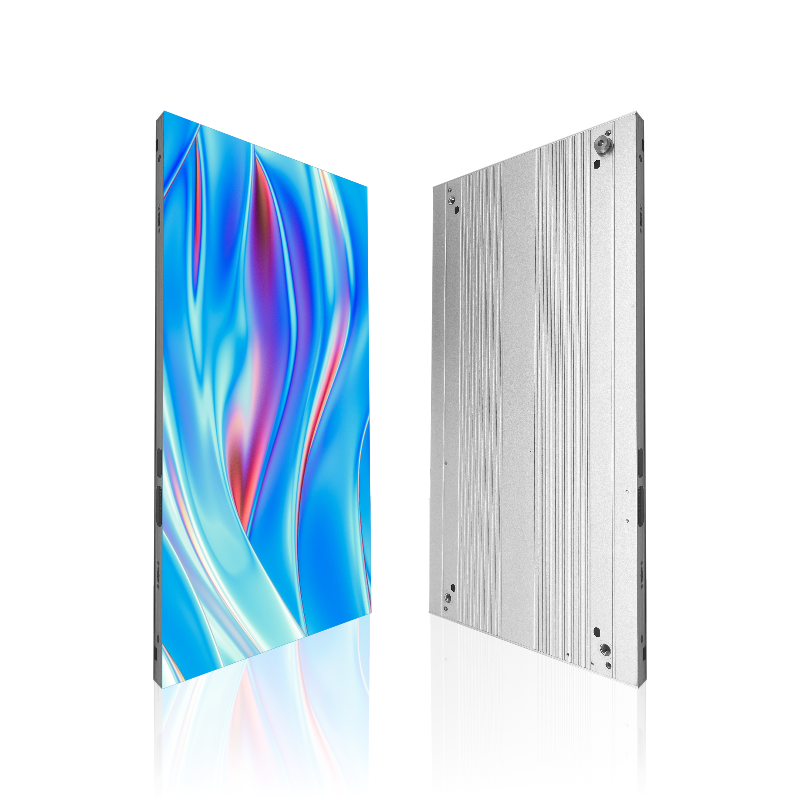
Indoor LED Wall – Ulight Series
Indoor LED Wall -Ulight Series -P0.9/1.25/P1.5/P1.8/P2/P2.5mm -Panel size 250*500mm, Module size 250*250mm -Ultra-lightweight and Space-saving -Wireless hard connection design -Support
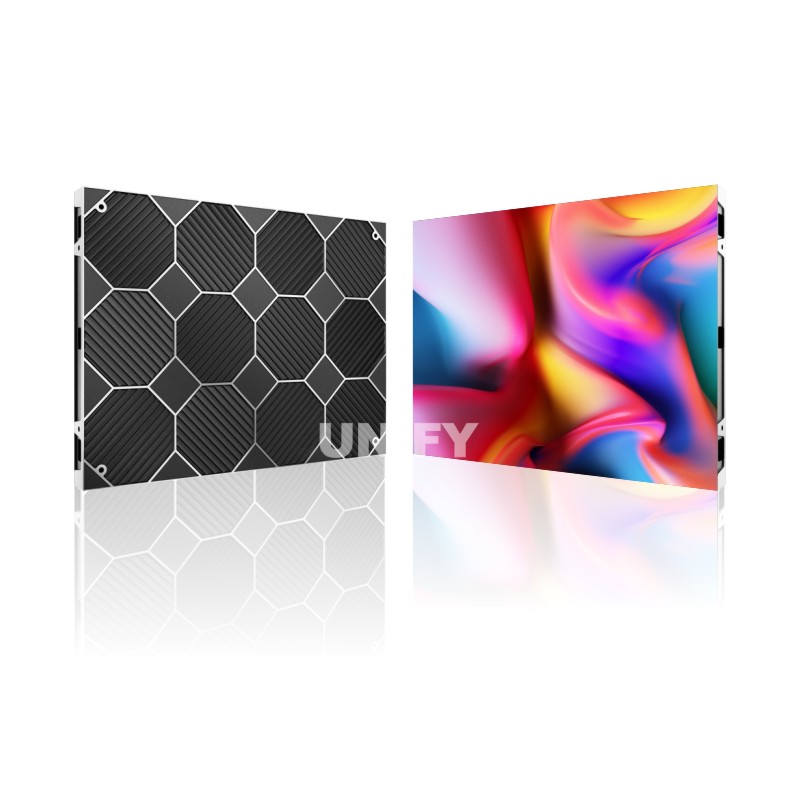
Front Service LED Screen EDI Series
Front Service LED Screen-EDI Series -P1.25/P1.5/P1.8/P2/P2.5/P3mm -Panel size 640*480mm, Module size 320*160mm -Ultra-lightweight and Space-saving -Wireless hard connection design -Support
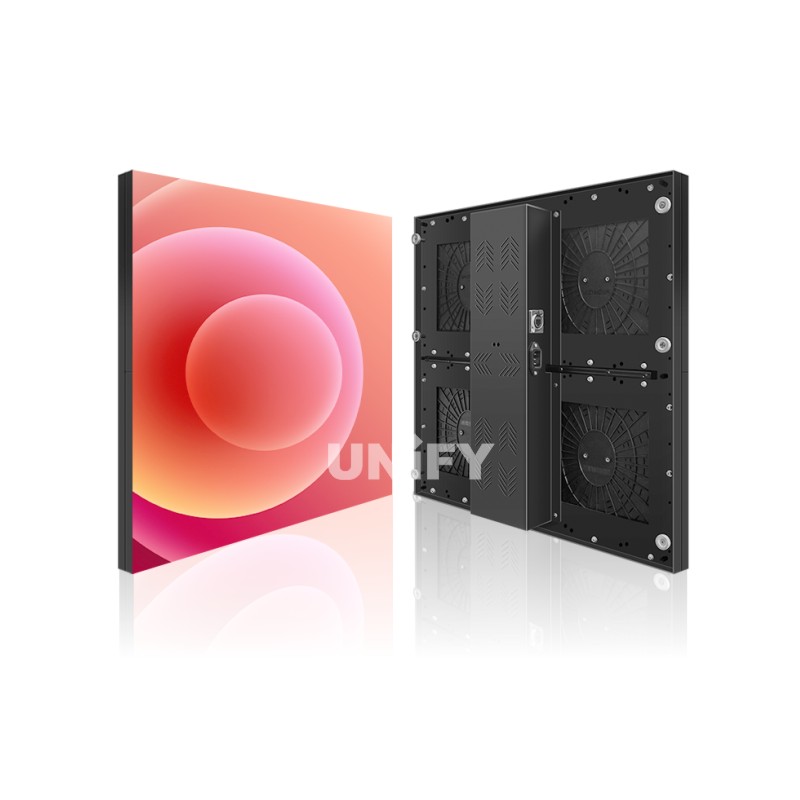
Indoor Fixed Screen- H Series
Indoor Fixed Screen -H Series High resolution & vibrant colors Seamless splicing & ultra-thin design Wide viewing angle & low
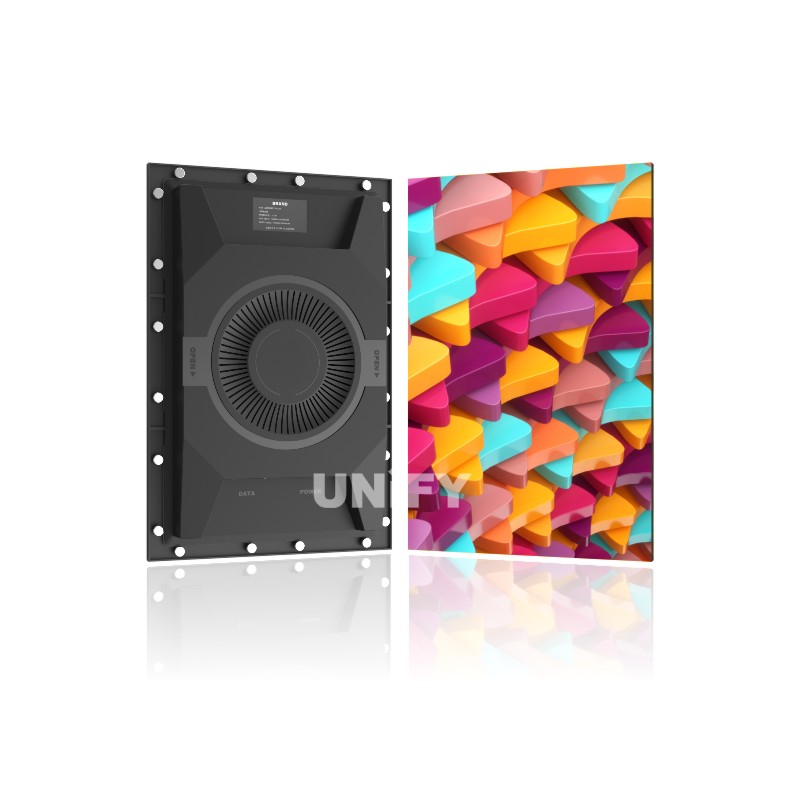
High-end Indoor LED Screen Ehonor Series
High-end Indoor LED Screen Ehonor -P1.25/P1.5/P1.8/P2/P2.5/P3mm -Panel size 480*360mm, Module size 320*160mm -Ultra-lightweight and Space-saving-Innovative Structural Design-Support Creative Shapes Horizontal
Rental LED Display
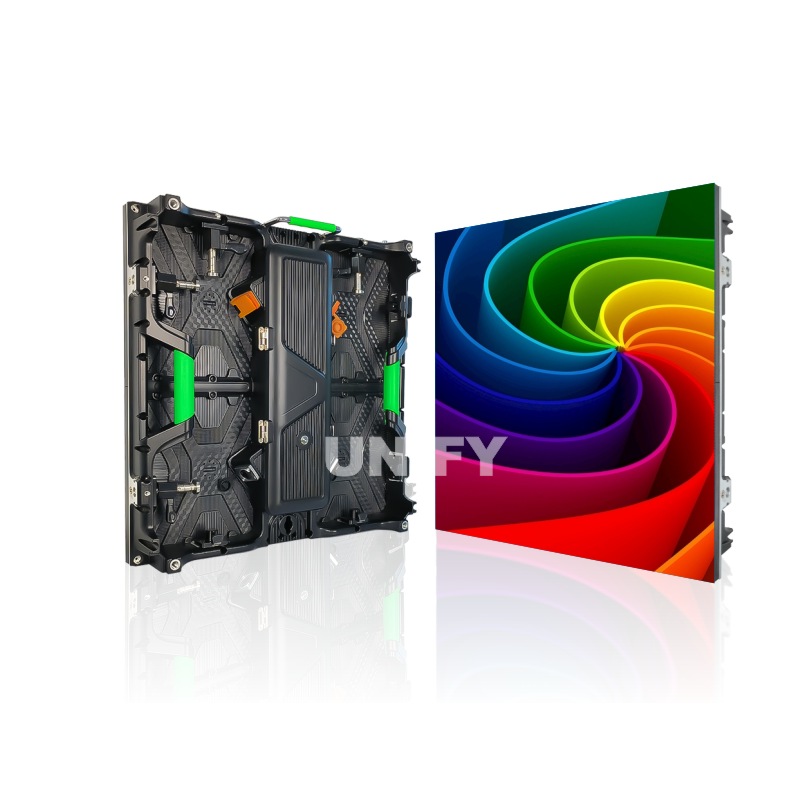
Stage LED Display-R series
Stage LED Display-R Series Cabinet weight:7.5kg Refresh rate: 3840HZ Pixel pitch: P2.604 P2.97 P3.91 P4.8mm Multiple protection, all-round protection Wireless
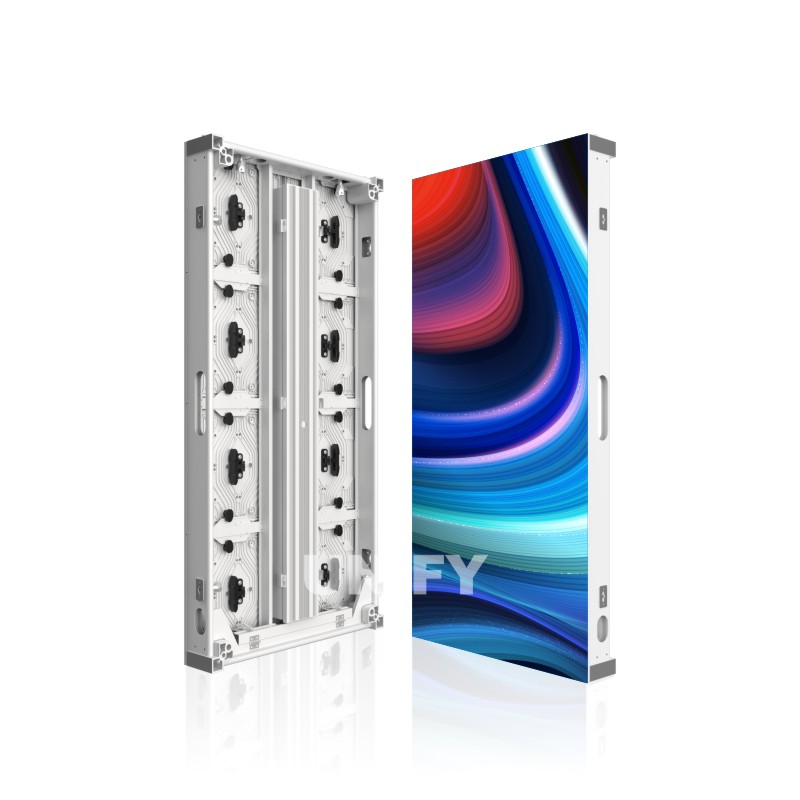
Rental LED Panel -RS series
Rental LED Panel-RS Series Cabinet weight:7.5kg Refresh rate: 3840HZ hard connection box Pixel pitch: P2.604 P2.97 P3.91 P4.8mm Material: strong
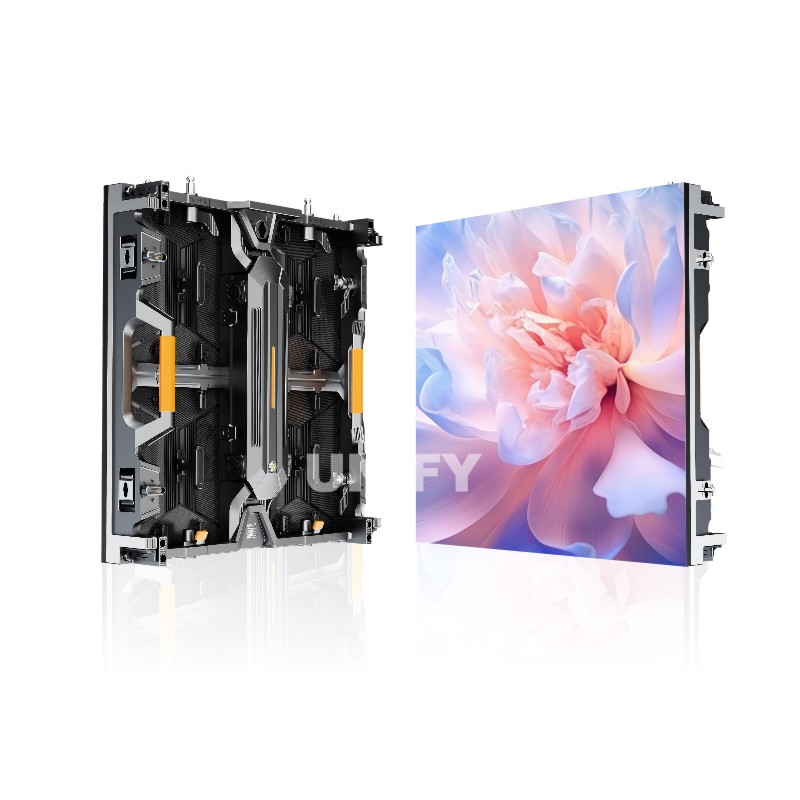
Event LED Display- Enova pro Series
Event LED Display -Enova pro Series Cabinet weight:7.5kg Refresh rate: 3840HZ hard connection box Pixel pitch: P2.604 P2.97 P3.91 P4.8mm
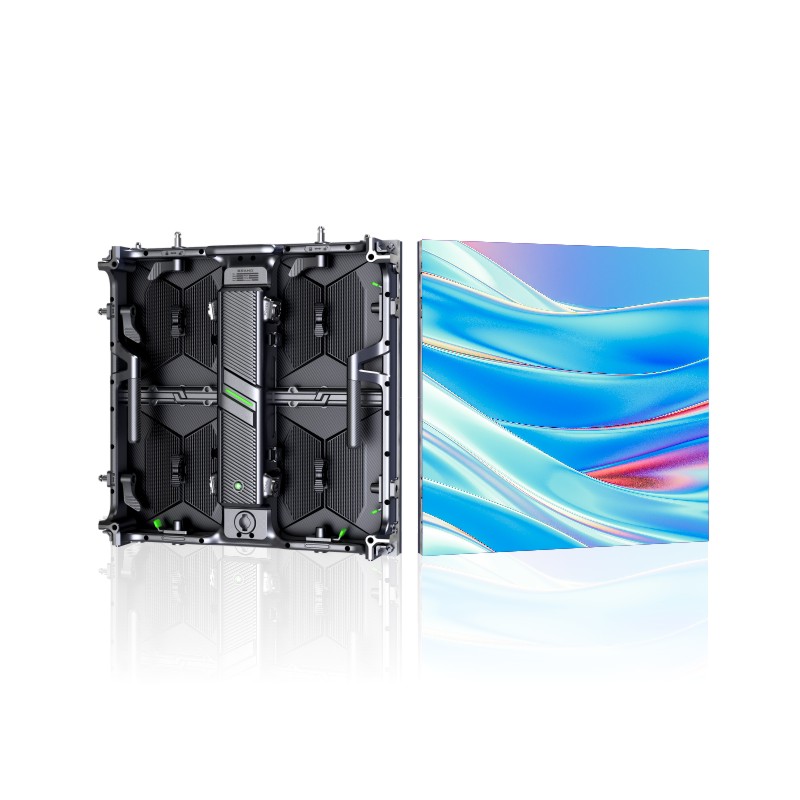
Stage LED Wall- Enova Series
Stage LED Wall -Enova Series Cabinet weight:7.5kg Refresh rate: 3840HZ hard connection box Pixel pitch: P2.604 P2.97 P3.91 P4.8mm Material:
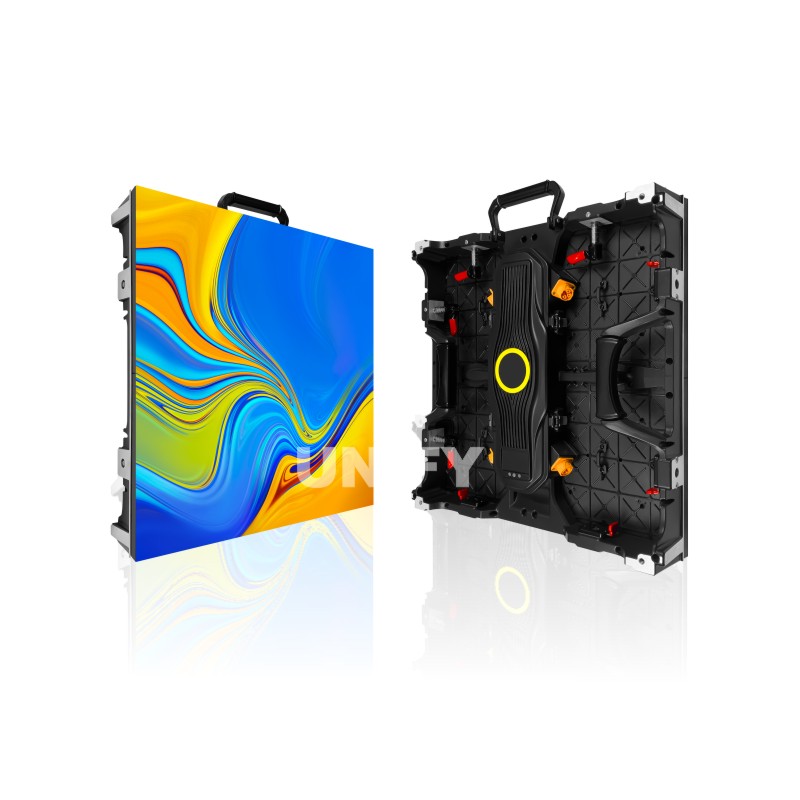
Stage LED Screen- Magic Series
Stage LED Screen-Magic Series -P2.6/P2.976/P3.91/P4.81mm High-end Rental LED display for stage High resolution for indoor Good wateproof for outdoor Support
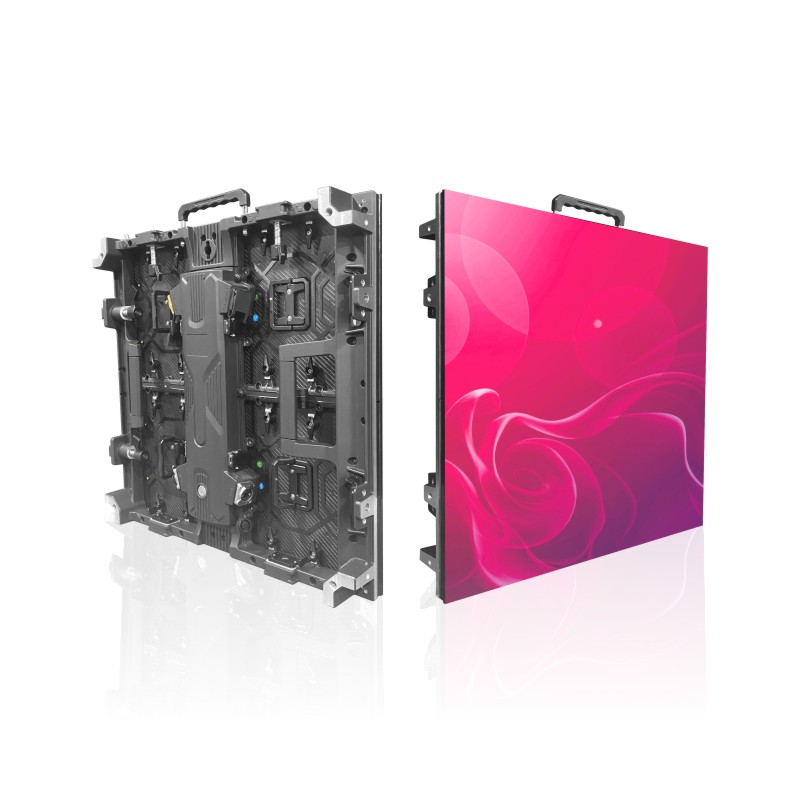
Rental LED Wall-Metastar
Rental LED Wall – Metastar Series Cabinet weight:7.5kg Panel Size: 500*500mm/ 500*1000mm Refresh rate: 3840HZ Support Right Angle Installation (Optional)
Poster LED Display

LED Poster Display
LED Poster Display LED Poster display, as known as “digital poster display”, is a highly integrated and portable LED display
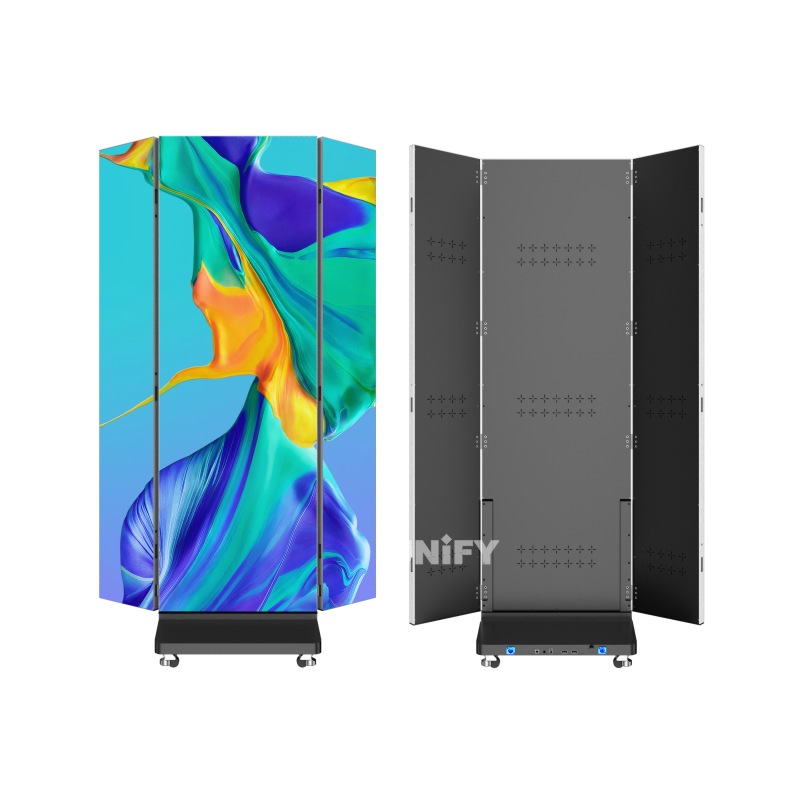
Tri-fold LED Poster Display
Foldable LED Poster – tri-fold LED poster display Refresh rate: 3840HZ Pixel pitch: P1.25 P1.53 P1.86 P2.5mm Application: retail store/stage
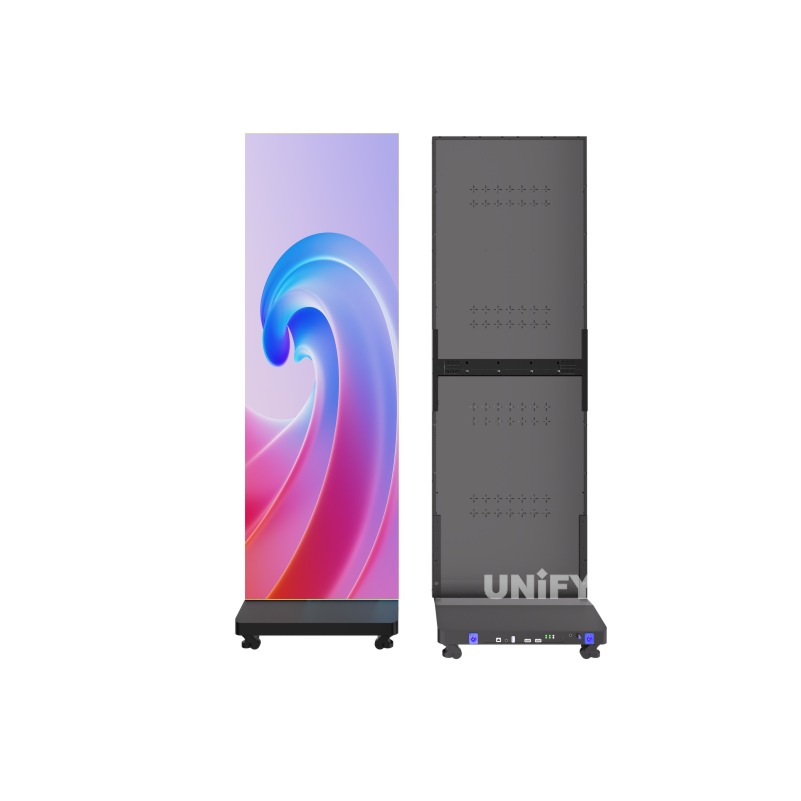
Folding LED Screen-Fold up and down style
Folding LED Screen-Fold up and down style Pixel pitch: P1.25 P1.53 P1.86 P2.5mm Split-screen playback Application: retail store/stage show/events/weeding/party/concert Plug
The Ultimate Guide to LED Display Screens in 2025
What is an LED display?
An LED display is a flat-panel display device that uses light-emitting diodes (LEDs) as light-emitting pixels. It is a modular electronic display device characterized by high brightness, high contrast, and vibrant colors.
Its applications are increasingly diverse, ranging from large-scale stage events and commercial advertising screens to small information displays and traffic signage. This demonstrates the importance of LED displays.
Components of LED display screens
The large LED display screens we see are all assembled from LED boxes or smaller units of LED modules.
This method can greatly reduce the cost of the entire process from production to installation of LED display screens, effectively improve the efficiency of each link, enhance the flexibility of LED display screens, and can be assembled into different sizes and shapes according to different usage scenarios and customer needs. This is an advantage that traditional display media cannot match.
LED module
LED module, also known as LED light board, is the smallest detachable component unit at the application level of LED display screens. LED modules are generally composed of LED lamp beads, signal input/output interfaces, chips, kits, PCB substrates and power input interfaces.
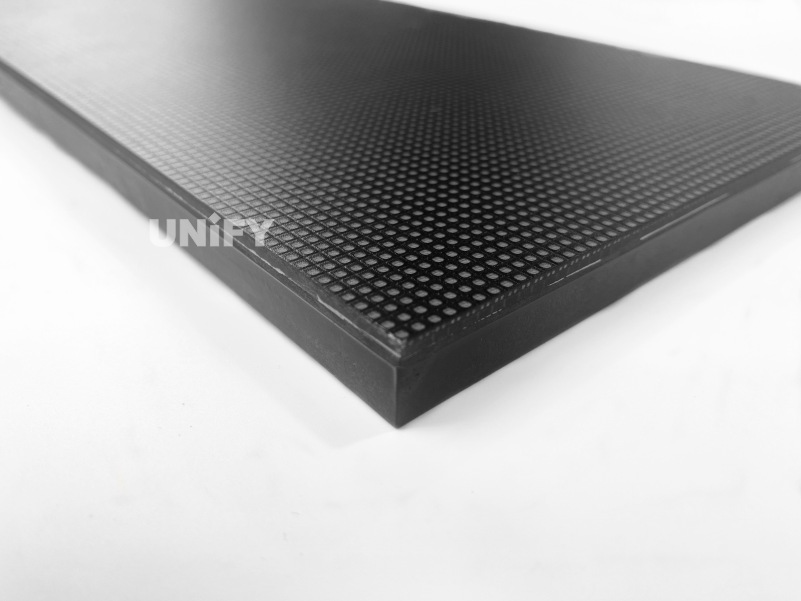
(1) LED lamp beads. That is, light-emitting diodes, which are the display light source of LED display screens.
(2) PCB substrate. As a hub platform for signal transmission, its function is to connect the control chip, LED lamp beads, signal input/output interfaces, and power input interfaces through PCB circuits.
After the components are soldered, the PCB substrate becomes a unit board that can be lit, which is commonly known as an LED module (light board).
(3) LED kit. Usually made of plastic, it is mainly used to fix and protect the LED module. It can fix the LED module to the LED box structure, or directly fix it to the steel structure, and is used to assemble the LED display screen.
However, not all LED modules need to be fixed with a kit. Many LED modules have integrated bolts for fixing, so this type of LED module does not require a kit.
(4) IC chip. Its main function is to control the control signal output by the system through the receiving card, thereby controlling the on and off and luminous intensity of the LED lamp beads.
By accurately controlling tens of thousands of pixels on the LED display screen, the required image can be displayed. Conventional LED modules generally include power amplifier chips, decoding chips (including CMOS power tubes), driver chips, etc.
(5) Signal input/output interface. The control signal output by the control system is connected from the receiving card to the LED module through the flat cable, and the signals between the LED modules are connected through the flat cable for the display control of the LED module.
LED cabinet
The LED cabinet is generally the basic component unit of the LED display screen, which is composed of LED modules arranged according to certain rules.
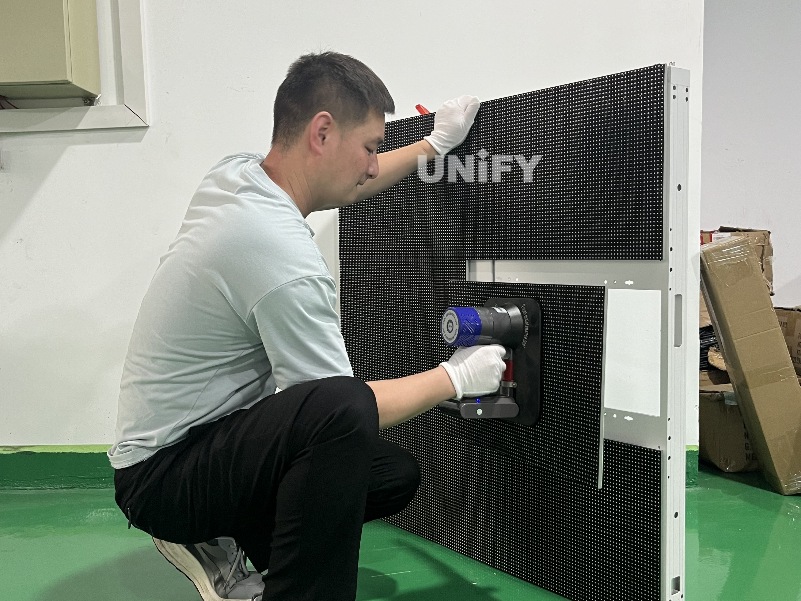
(1) LED module. It is the main light-emitting component of the LED cabinet. All components in the LED cabinet are designed to ensure the normal and stable operation of the LED module.
(2) LED cabinet structure. The material is generally iron, die-cast aluminum and carbon fiber, etc. It is mainly used to fix the internal components of the LED cabinet to facilitate the assembly of the LED display screen. In addition, it can also play a good protective role.
(3) Switching power supply. Generally, LED display screens need to be powered by a DC low-voltage power supply. The commonly used DC voltage is 2.8~5V. T
he commonly used mains power in my country is 220V/50Hz. There are many mains power standards used abroad.
In order to expand the applicable area of LED display screens, the switching power supply input voltage used in the general LED industry is AC100~240V and 50/60Hz, and the rated output power is mostly concentrated in 150~400W.
(4) Receiving card. It is the control center of the LED cabinet display. It can output different control signals according to the different driver chips and driver circuits of the LED cabinet, thereby controlling the normal display of the LED cabinet.
(5) Adapter board. It can rearrange and combine the data control signals output by the receiving card according to the definition of the LED module signal input interface, and transmit the signal to the LED module through the cable or direct interface connection. Its size and shape are determined by the internal structure of the LED cabinet.
LED Display Classifications
Classification by Installation Environment
1. Indoor LED Displays
Indoor LED displays are designed specifically for indoor environments. They typically feature lower brightness, smaller pixel pitches, and a closer viewing distance, yet are capable of displaying high-definition, vibrant content.
They are commonly used in indoor shopping malls, conference rooms, churches, exhibition halls, and other locations for information dissemination, brand presentation, and multimedia interaction.
2. Outdoor LED Displays
Outdoor LED displays typically offer high brightness and excellent protection (IP65+). They can be used in direct sunlight and can be viewed from several dozen meters away.
Therefore, they have larger pixel pitches (such as P4, P6, P8, and P10). They are suitable for outdoor applications such as commercial districts, highways, and stadiums.
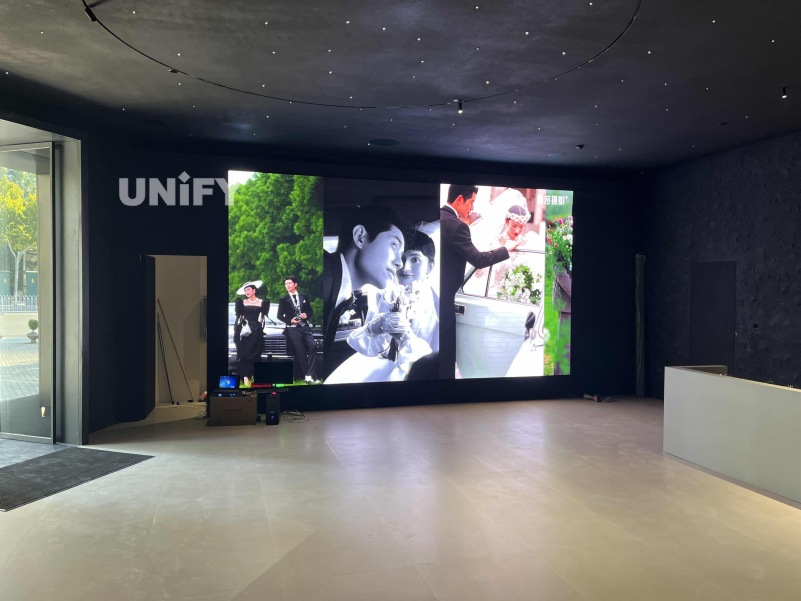
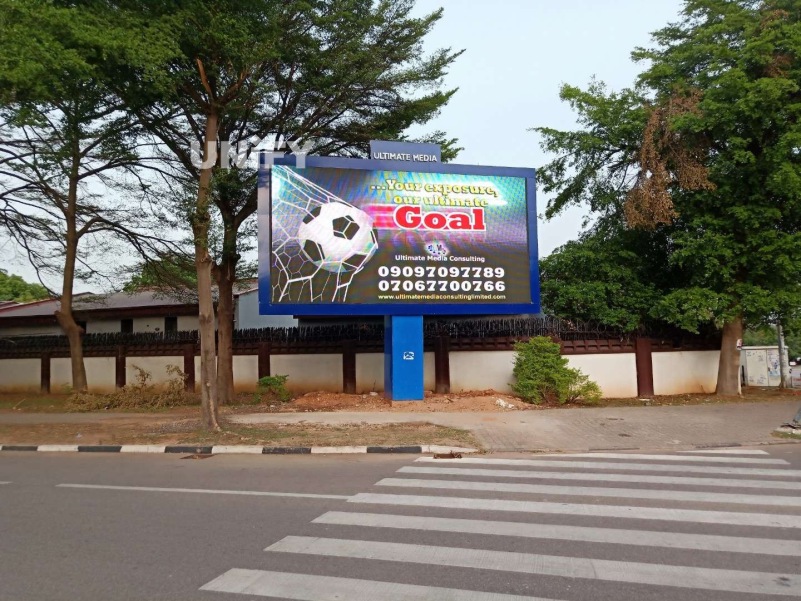
Based on Processing Methods: There are three main types
Direct-In-Package (DIP) LED Displays
DIP (Dual In-Package) was a widely used packaging method for early LED displays. LEDs with two metal pins are soldered through a circuit board. Each LED consists of three independent lamps: red, green, and blue.
Due to their low pixel density, extremely high brightness, and strong UV and high-temperature resistance, DIP LED displays are primarily used for outdoor, long-distance viewing, such as highway billboards, large outdoor advertising screens, and stadium fence screens.
SMD LED Display (Surface Mount Device)
SMD (Surface Mounted Device) solders the LED pins directly to the circuit board surface, without penetrating the board. It is currently the most common LED packaging technology and is suitable for most indoor and outdoor full-color LED displays.
Its characteristics include high brightness, wide viewing angles, and excellent color consistency. SMD LED displays offer a good price-performance ratio and are suitable for various applications, including advertising screens, stage screens, and commercial displays.
COB LED Display (Chip-Scale Package)
COB (Chip-On-Board) packaging directly packages multiple LED chips onto a PCB, resulting in a smaller pixel pitch and higher integration. Compared to SMD, COB LED displays offer better resistance to impact, moisture, and dust.
They are suitable for indoor locations requiring high stability and precision, such as high-end conference rooms, surveillance centers, and control and command systems.
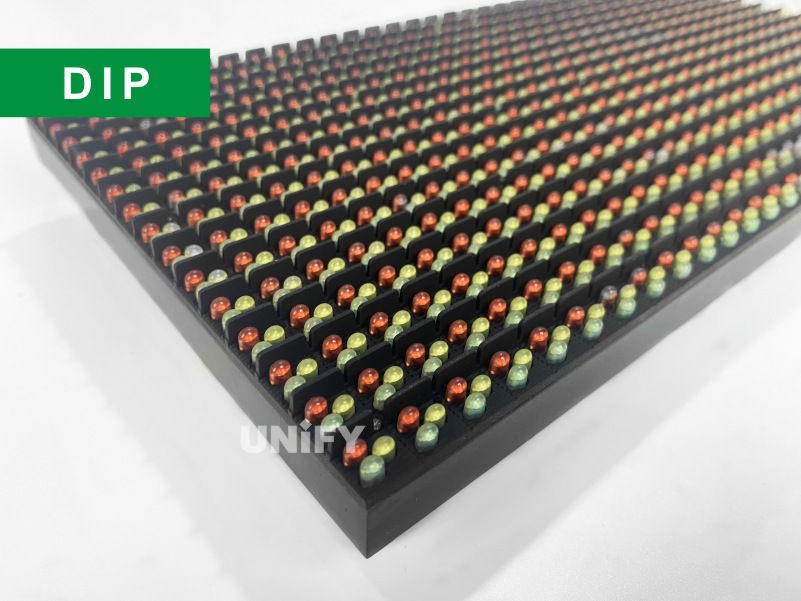
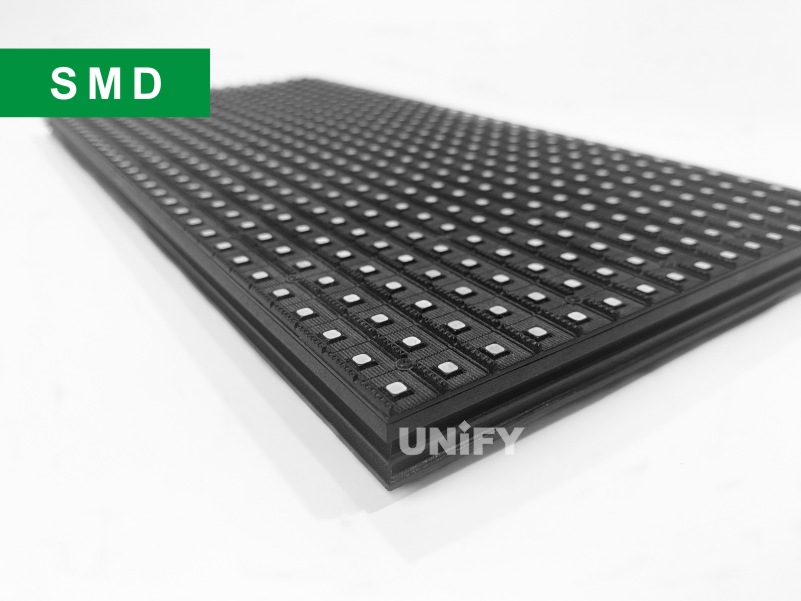
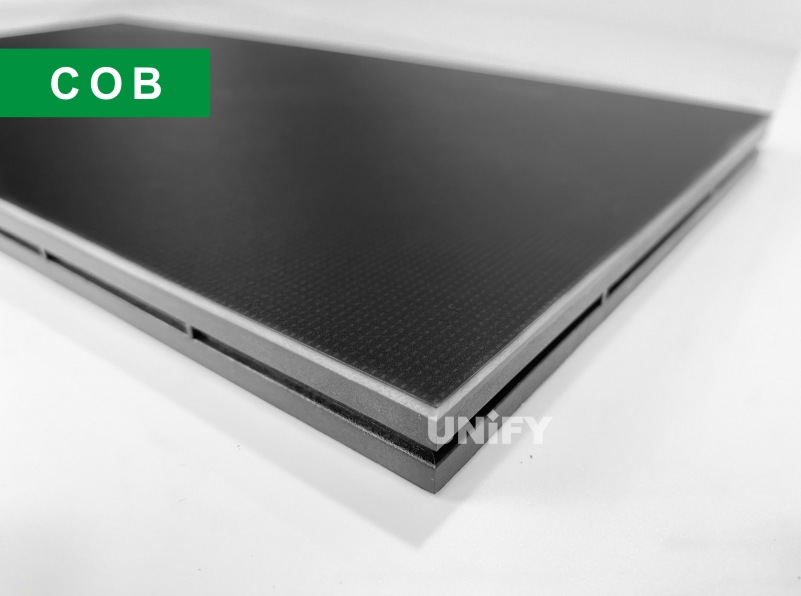
Based on Application
1. Rental LED Displays
These are widely used for temporary applications such as stage shows, concerts, exhibitions, and press conferences. Rental LED screen feature quick installation and removal, a lightweight structure, and durability and reliability.
They typically utilize a die-cast aluminum enclosure with a quick-lock design, making them easy to move and maintain frequently.
2. Fixed Installation LED Displays
These are suitable for long-term, fixed installations. Their stable structure typically requires no frequent installation or removal, requiring only that they meet environmental and viewing requirements. They prioritize durability, energy efficiency, and ease of maintenance.
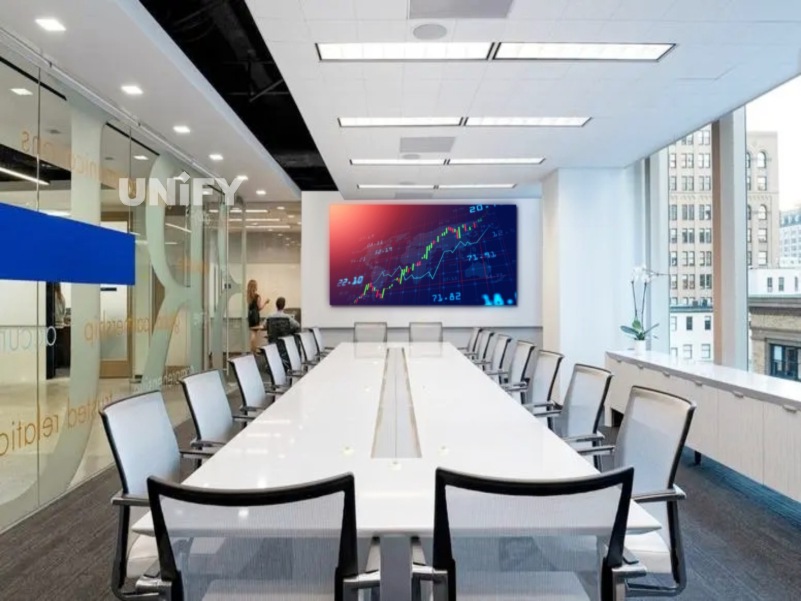

LED display solutions

LED Screen for Conference Room solution
Conference room LED Display Unify delivers tailored LED display solutions for meeting rooms — clear visuals, smooth integration, and flexible design to make every presentation
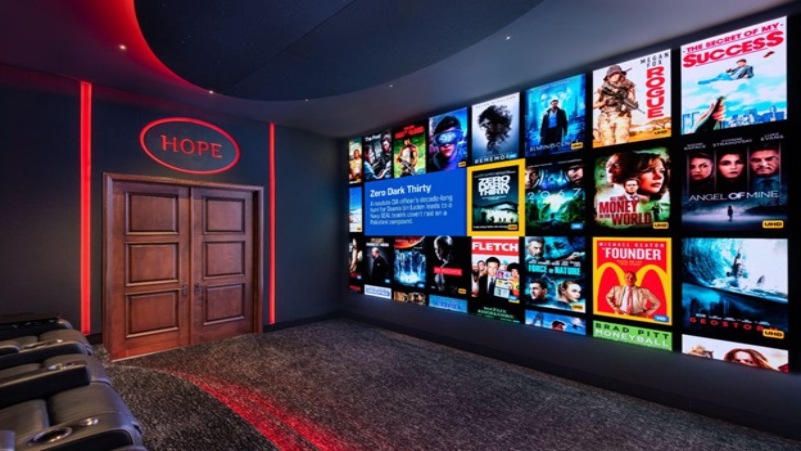
Home Theater Display Screen
Home Theater Display Screen Unify LED is dedicated to designing and producing innovative LED display solutions, delivering stable performance, customized designs, and competitive pricing to
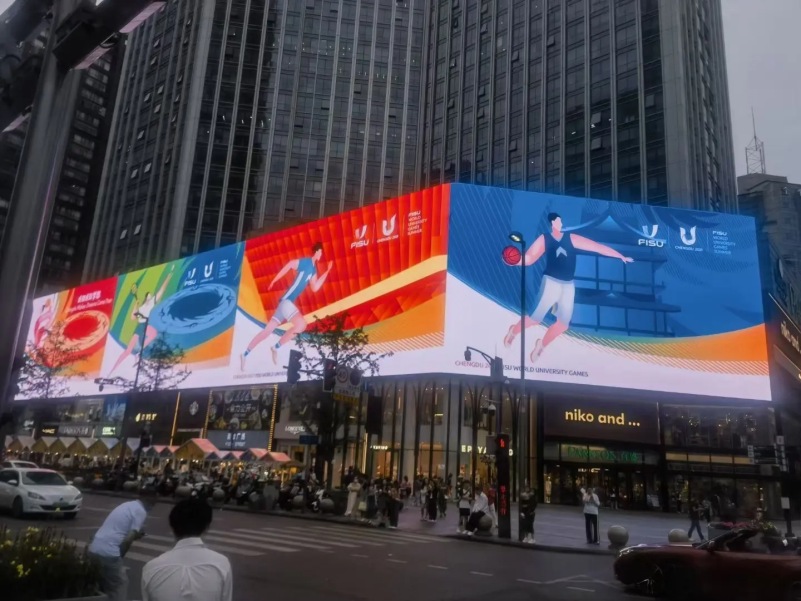
3D LED Billboard
3D LED Billboard Unify LED is a factory focusing on the R&D and manufacturing of high-quality LED displays, committed to providing reliable, flexible and cost-effective
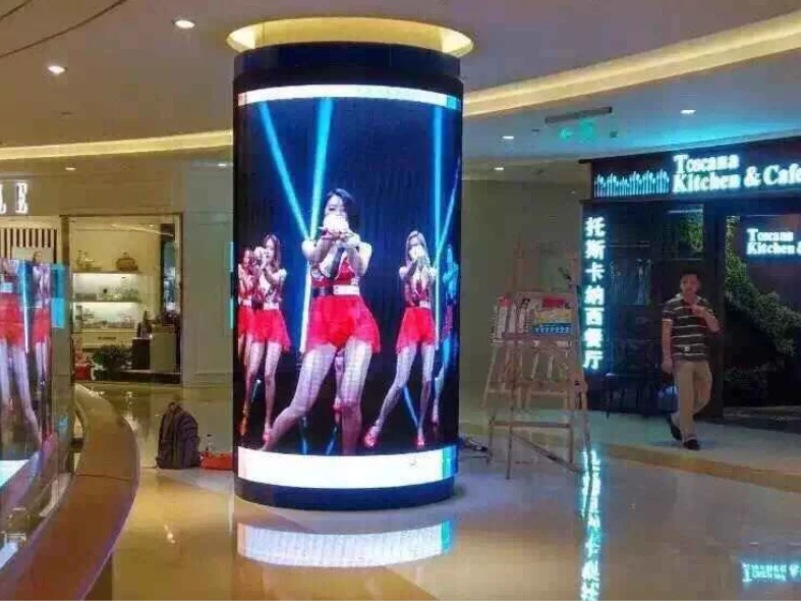
LED Display for Shopping Mall
Shopping Mall LED Screen Power your mall with Unify’s high-performance LED displays—designed to elevate customer experience, boost revenue, and bring your space to life. Get
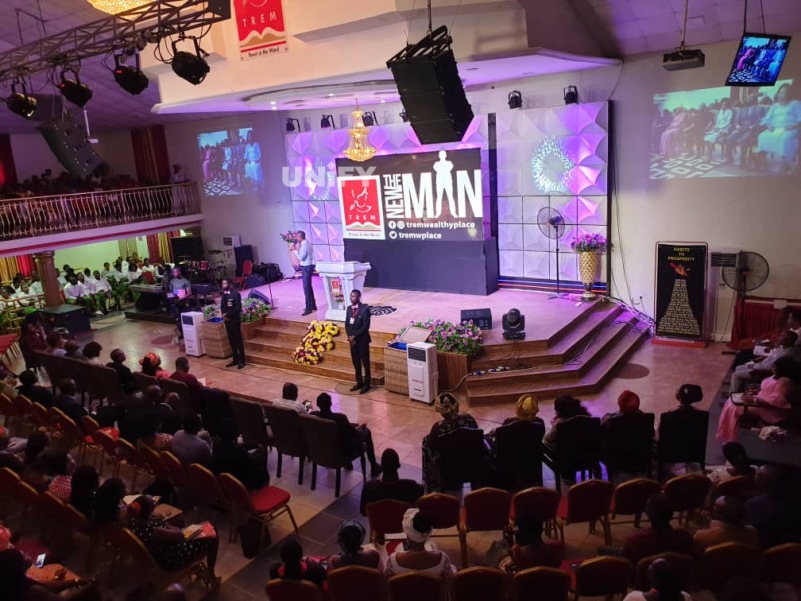
LED Display for Church
LED Display for Church In the sacred and quiet church environment, the LED display adds a more immersive visual support to worship, sermons and worship

LED Display for Stage
LED Display for Stage Events Get Quotation Now! LED Display for Stage Events LED screens are now used more often in stage shows. Event LED
FAQs
An LED display is a screen that uses light-emitting diodes (LEDs) as display pixels. UnifyLED's LED displays feature high brightness, high resolution, and low energy consumption, making them widely used in advertising, commercial applications, stage performances, traffic signs, and other applications.
UnifyLED's indoor LED displays are suitable for indoor environments, offering higher pixel density and detailed display quality. Outdoor LED displays, on the other hand, offer higher brightness, high-temperature resistance, and are waterproof and dustproof, making them suitable for outdoor applications such as urban billboards, stadiums, and traffic signs.
When choosing an LED display, first consider the application scenario (indoor or outdoor), viewing distance (which determines the pixel pitch), screen size, budget, and installation method. UnifyLED provides personalized consulting services to help you select the best solution for your specific needs.
Pixel pitch refers to the distance (in mm) between adjacent LED pixels. The smaller the number, the finer the image, making it suitable for close viewing. UnifyLED recommends:
For close-range use: Choose P1.25-P2.5.
For medium-range use: Choose P3-P5.
For long-distance advertising: Choose P6 or higher.
UnifyLED's outdoor LED display has an IP65 rating and above, offering waterproof, dustproof, and UV-resistant features. It operates reliably in all weather conditions and is suitable for all-weather use.
UnifyLED offers comprehensive customization services. We can design and manufacture custom-shaped LED displays, including curved, cylindrical, and L-shaped ones, suitable for various exhibitions, stage sets, and commercial displays.
Yes. UnifyLED's LED displays feature a modular design. In the event of a malfunction, damaged modules can be replaced individually, making maintenance easier and reducing operating costs.
UnifyLED's LED display prices vary depending on factors such as pixel pitch, screen size, and operating environment. Please contact us for a specific quote, and we will provide the most cost-effective solution based on your needs.
